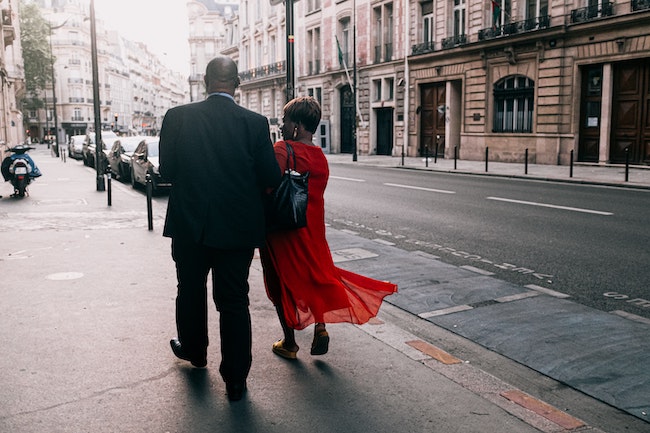Why Are the French People so Difficult to Understand?
- SUBSCRIBE
- ALREADY SUBSCRIBED?
BECOME A BONJOUR PARIS MEMBER
Gain full access to our collection of over 5,000 articles and bring the City of Light into your life. Just 60 USD per year.
Find out why you should become a member here.
Sign in
Fill in your credentials below.
The character of the French will never stop being a topic of discussion. Often observed by foreigners, and widely commented on in a way that is not always complimentary by journalists and travelers, the French leave nobody indifferent. Their numerous contradictions generate questions and sometimes give rise to misunderstandings among foreigners.
Working every day alongside expatriates from various backgrounds and all nationalities for the past 10 years, I like to decipher the cultural markers of my fellow citizens with the neutrality necessary for this exercise.
This article is an attempt to clarify five French contradictions, steering clear of clichés and preconceived ideas as much as possible.

Photo © Refocus, Unsplash
1. The grumpy French vs. the French joie de vivre
The France of the ’60s seems like a distant memory, along with its Godard and Truffaut movies, Jeanne Moreau and Jean-Paul Belmondo, and the admiration for the French language and way of life.
If the French art de vivre — celebrating the joy of living, carefreeness, a taste for culinary pleasures and holidays — is a widely accepted characteristic, outside observers are amazed when they notice the perception that the French have of the future. Where is the famous joie de vivre?
From lack of faith in the future and rejection of political leaders, to skepticism about the education system and the welfare state, pessimism pervades all areas of French life. So, the French, these bon vivants… are they also incorrigible complainers in addition to being pessimistic?
According to an Ipsos study carried out for BVA in February 2018, 70 percent of French people expect the situation in their country to worsen in the years to come, which makes France the world’s most pessimistic country, amongst 57 countries where BVA investigated.
There is therefore a real contradiction between people who are quite happy individually, or who aspire to be so in the private sphere, with their family and friends, and those who are pessimistic when it comes to the fate of their country, which they think is heading straight for disaster.
According to the sociologist Rémy Oudghiri, speaking on France Inter’s program “Bonheur à la Française, why are the French so pessimistic” on February 19, 2020, “what’s difficult in France, is to acknowledge that we are happy publicly. There is a fairly typical scene in France; especially in the mornings when people arrive at work and begin to talk to each other: they have this custom of criticizing everything, by suggesting that everything seems to be going wrong, but in the end, they are very happy. It’s as if, deep down, pessimism is a topic of conversation.”
Criticism is indeed a national sport and all subjects may be the subject of fatalistic and acrimonious remarks: from the political situation, the country’s leaders, the economic situation, to the weather. My students, who are either visiting Paris, or living here as expatriates in France, are often disconcerted by the temperament of the French, who grumble all day long and often see the glass half empty- while others (non-French) would see it in reverse, half full.

Photo © Joshua Ness, Unsplash
2. Polite vs. Rude
It’s almost impossible not to bring up the well-known tourist cliché regarding the rudeness of the French, which can be read all over various travel blogs. With 84 million tourists in 2019 before the start of the coronavirus pandemic, a large number of negative testimonies regularly feed the press or travel forums on the internet.
We regularly read that the French are arrogant, rude and boorish. The anecdotes of unfortunate tourists reporting harsh words and rude behavior, or the lack of consideration of Parisian cafe waiters, have long fed the foreign press and internet forums.
It’s not a matter of questioning all these comments, which of course have an element of truth, but perhaps we should wonder whether Parisians are not, after all, as unfriendly or stressed as city dwellers in any other major cities in the world.
It is certainly right that the French are not always the most smiley bunch, but this is because they often tend to keep their smiles for their own circle of friends.
One thing that is certain, however, is that these harsh attitudes contrast with the codes of politeness still in force in the country- those which are still followed by a large part of the French.
Certain rules have changed over time, but politeness and courtesy between speakers remain essential in France.
No conversation begins without a “hello“, an essential prerequisite for the start of any conversation between speakers, from all social classes. Conversations are usually punctuated with polite words such as “hello,” “thank you,” “goodbye“. The use of the formal address (“vous”) in the French language is a mark of politeness and respect, used when addressing a foreigner or a person much older than oneself.
While expression of courtesies may seem unnecessary in a world marked by speed, with the goal of not wasting time on discussions full of overcomplicated polite expressions, it is perhaps interesting to remember that politeness is not a rigid code of outdated decorum, but a way of being with others, of living in society, a form of spontaneous benevolence towards others.
Politeness is the grace of the spirit, wrote the philosopher Henri Bergson.

Photo © Peter Bucks, Unsplash
3. The new Parisienne versus the myth of the Parisienne
The myth of the Parisienne has remained unchanged for centuries up until today where it has even become a marketing asset for selling dozens of books dedicated to this topic. However, the Parisienne who strolls in the streets of Paris in 2021 does not necessarily correspond to the stereotype that foreigners still often have.
In their mind, the French woman is often a Parisian: white skinned, thin, sexy and chic, dressed in a trench coat, wearing red lipstick, cycling in the 6th arrondissement, hair blowing in the wind, perched on 12-centimeter heels. This fantasy has existed for a very long time and is outdated.
Let’s go back for a moment to the myth of the Parisienne. Originally, it started in the famous literary salons (les salons littéraires) of the 17th century, where women were distinguished by their scholarship and their intelligence. Some examples are the writers Marquise de Sévigné and Madame de La Fayette, who shone for their knowledge and their avant-gardism. French women later embodied this archetype through actresses such as Catherine Deneuve, Emmanuelle Béart, Marion Cotillard in the cinema, or by philosophers such as Simone de Beauvoir and other well-known personalities.
But today, the Parisian, free from the fantasy that was thrown upon her shoulders, is diverse: she is no longer necessarily white, not always dressed as a model ready for a catwalk. She does not always wear a size 36. So goodbye to the femme fatale, and welcome to a Parisian coming from various backgrounds, and able to shake up the smooth and predictable image with which we have labeled her for centuries.
Two books published in 2019 and 2020 bury the Parisienne archetype: The New Parisienne: The women and ideas shaping Paris by Lindsay Tramuta and Joann Pai and Je suis PAS Parisienne by Franco-British journalist Alice Pfeiffer.
View this post on Instagram
4. A taste for mistrust vs. a very strong expectation of the State
French history, shaped by revolts and successive rebellions, reinforces the idea of a stubborn nation, difficult to control and which doesn’t respect the established rules. Could we say that a revolutionary lies in every French person? Discussions and debates related to politics are usually very heated in a country where everyone comments on government decisions.
Even though this isn’t a matter of judging their claims, the fairly new crisis of the Gilets Jaunes more recently illustrated this defiant character of the French. The organization of demonstrations, ignoring bans or requests for legal authorization in the prefecture, is a revealing example.
The mistrust of French citizens towards their political leaders is proven by numerous studies, even if this currently represents a trend which extends far beyond our borders.
Paradoxically, the French expect a lot from the State especially when it comes to social assistance. The pandemic is a relevant example. By calling into question the management of the government during the coronavirus crisis, and by expecting the State to alleviate and repair the economic and social shortcomings caused by the crisis, the French are showing strong expectations of the State in terms of social protection.
According to Jean Garrigues, a French politician, this tension “dates back to the Revolution when, after the authoritarian rule of the kings, Bonapartism succeeded with the idea of a power strongly supported by the people. The modern political history of France is divided by this paradox, by this double driving force: on the one hand, the promotion of the individual in his autonomy and his own capacity to deliberate, on the other, the need for a providential man. Emmanuel Macron has benefited greatly from this during his campaign“.

Photo © Daria Shevtova, Pexels
5. Fans of Frenglish versus the anglicism resistants
The French language is a source of constant tension between the great sages of the Académie Française, the very austere institution which, since 1635, has been in charge of defining the French language, through the development of its dictionary and repression of Franglais. This is done in the professional world (like the media, new technologies, and marketing), and more widely still in everyday language.
To support the open hunt for anglicisms, the Toubon law was passed in 1994, designating French as the official language of education, work, exchanges and public services. This was clearly an open declaration of war against anglicisms.
The French Language Enrichment Commission published a list of official translations of English words passed into the French vernacular in the Official Journal. In this new version, translations such as “director of a series” versus “showrunner,” or “videotox” instead of “deepfake,” should now be favored. These suggestions are at odds with the vernacular, but at least they have the advantage of entertaining the gallery.
Do we need to point out that throughout history there has been contact between the French and English language? The origin dates back to the 11th century with the invasion of William of Normandy. It is estimated that a third of English words come from French. Several centuries later, this French influence has been reversed and now anglicisms are surging into French companies with words such as: startup, call, forward (and other English words which are commonly used.)
In this harsh resistance, how can we not see a rupture between an old world steeped in conservatism and dogmatism, clinging to the idea of a pure language that should be fiercely defended against the linguistic invasion of a globalized world- and a younger, globalized society in which the use of anglicisms reflects a search for efficiency, precision and simplicity, which English words often reflect? Even President Emmanuel Macron, keen on French literature, claimed in 2017 that he wanted to make France a “startup nation.” In the past months, the pandemic has also seen a fast increase of anglicisms crossing borders, with universal new words like cluster and click & collect. The Académie Française’s battle may already be lost.
French, fortunately, is still a living language. Therefore it’s normal that it continues to borrow words and expressions from other languages. It has always been this way throughout history.
Based in Paris, Florence is the founder of French a la Carte, an agency that offers private and tailor-made French lessons to expats and also immersion in Paris with private tours in easy French for French learners.
Lead photo credit : Photo © Martin Robson, Wikimedia. (CC BY-SA 2.0)






REPLY
REPLY
REPLY
REPLY
REPLY